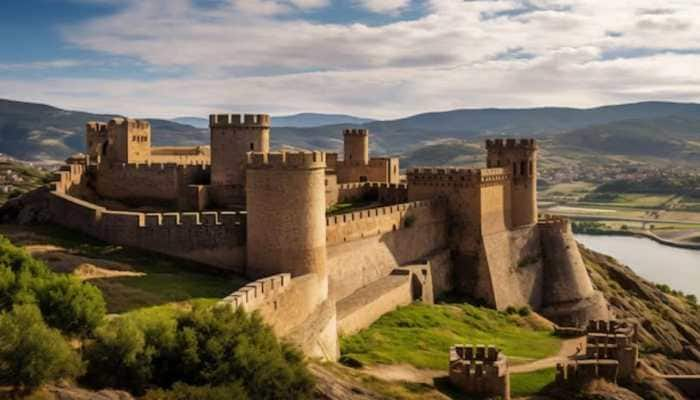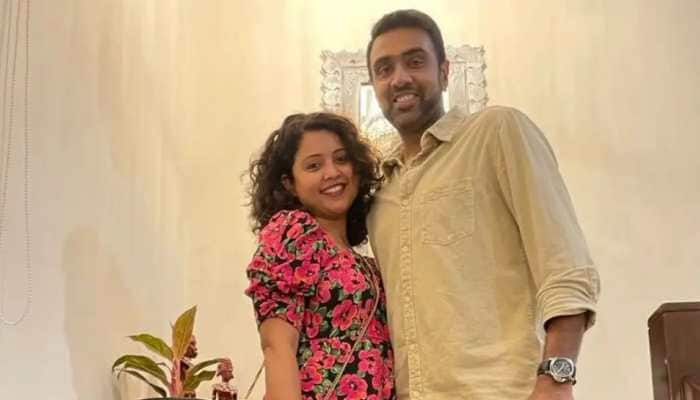Field Marshal Sam Hormusji Framji Jamshedji Manekshaw's 12th death anniversary today, Indian Army pays homage
Field Marshal Sam Hormusji Framji Jamshedji Manekshaw, popularly known as Sam Manekshaw and as Sam Bahadur, was one of the greatest military officers of India. The death anniversary of the seventh Chief of Army Staff Field Marshal Sam Manekshaw falls on June 27 and the Indian Army paid homage to the legendary officer.
Trending Photos
)
Field Marshal Sam Hormusji Framji Jamshedji Manekshaw, popularly known as Sam Manekshaw and as Sam Bahadur, was one of the greatest military officers of India. The death anniversary of the seventh Chief of Army Staff Field Marshal Sam Manekshaw falls on June 27 and the Indian Army paid homage to the legendary officer.
One of the greatest officers of the Indian Army, Field Marshal Sam Manekshaw died at the age of 94 on June 27, 2008, at Wellington in Tamil Nadu. He was the Army Chief in 1971 when the Pakistani Army was crushed by the Indian Army, resulting in the creation of Bangladesh.
Taking to Twitter, the Indian Army wrote, ''General MM Naravane #COAS and all ranks of #IndianArmy pay homage and rich tribute to Field Marshal SHFJ Manekshaw (3 Apr 14 - 27 Jun 08) on his death anniversary. He led the Indian Army in the Victory of #1971 war.''
General MM Naravane #COAS and all ranks of #IndianArmy pay homage and rich tribute to Field Marshal SHFJ Manekshaw (3 Apr 14 - 27 Jun 08) on his death anniversary. He led the Indian Army in the Victory of #1971 war. pic.twitter.com/FfIyR9T1Jh
— ADG PI - INDIAN ARMY (@adgpi) June 27, 2020
Born to a Parsi family in Amritsar on April 3, 1914, Sam Manekshaw had several achievements under his name. His father Hormusji Manekshaw was a doctor in the British Indian Army during World War I in the Indian Medical Service (now the Army Medical Corps). Sam's younger brother Jemi Harmusji Framji Manekshaw too served in the armed forces.
Jemi Harmusji Framji Manekshaw became a doctor and was commissioned on July 22, 1943, in the Royal Indian Air Force as a medical officer. Air Vice Marshal Jemi Harmusji Framji Manekshaw retired from the Indian Air Force in the 1970s.
Sam Manekshaw, too, wanted to become a doctor and planned to go to London to study. But after his father refused to send him as he thought that Sam was very young, he joined the then Hindu Sabha College (now Hindu College) in Amritsar and completed his graduation in science.
He then applied for the Indian Military Academy (IMA), which was being established to train Indian officers, and was one of the 15 selected cadets, securing the sixth rank. He was from the first course of IMA also called 'The Pioneers'.
His military career spanned four decades and five wars, beginning with service in the British Indian Army in World War II. Commissioned into the 4th Battalion, 12th Frontier Force Regiment, as a Second Lieutenant on February 1, 1935, Sam Manekshaw saw action in World War II. He was also awarded the Military Cross for gallantry.
During the war on the Burma front, he was severely wounded by machinegun fire with the doctors also giving up the hope of reviving him. When an Australian surgeon asked him was had happened, a badly wounded and bleeding Sam Manekshaw replied that he was "kicked by a mule". During the surgery, seven bullets were taken out from his lungs, liver, and kidneys. A large part of his intestines was also removed due to the severe wounds.
He was reassigned to the 8th Gorkha Rifles after the Independence in 1947 after the 4th Battalion, 12th Frontier Force Regiment, became part of the Pakistan Army.
He became the seventh Chief Of Army Staff in 1969 and two years later led the Indian Army to its greatest ever victory in the 1971 India-Pakistan was. Popular with Gurkha soldiers and called Sam Bahadur, he was made an honorary general of the Nepalese Army in 1972.
He was awarded the Bhushan in 1968 for playing an instrumental role for handling the insurgency in Nagaland as the General Officer Commanding in Chief (GOC-C) of the Eastern Army Command. He was also awarded the Padma Vibhushan in 1972.
In another tweet remembering Sam Manekshaw, the Indian Army wrote, "You are required to ensure the security of this country against any aggressor. What does that mean for you? It means, that you shall have to fight, and fight to win. There is no room for the losers, if you lose don't come back."
Manekshaw fought in five wars - World War II, 1948 Kashmir War Against Pakistan and Afghan tribals, 1962 Indo-Sino war, 1965 and 1971 Indo-Pak wars.
The great military officer was the first General of the Indian Army to be promoted to the rank of Field Marshal in 1973 after his retirement.
Stay informed on all the latest news, real-time breaking news updates, and follow all the important headlines in india news and world News on Zee News.
Live Tv







)
)
)
)
)
)
)
)
)
)
